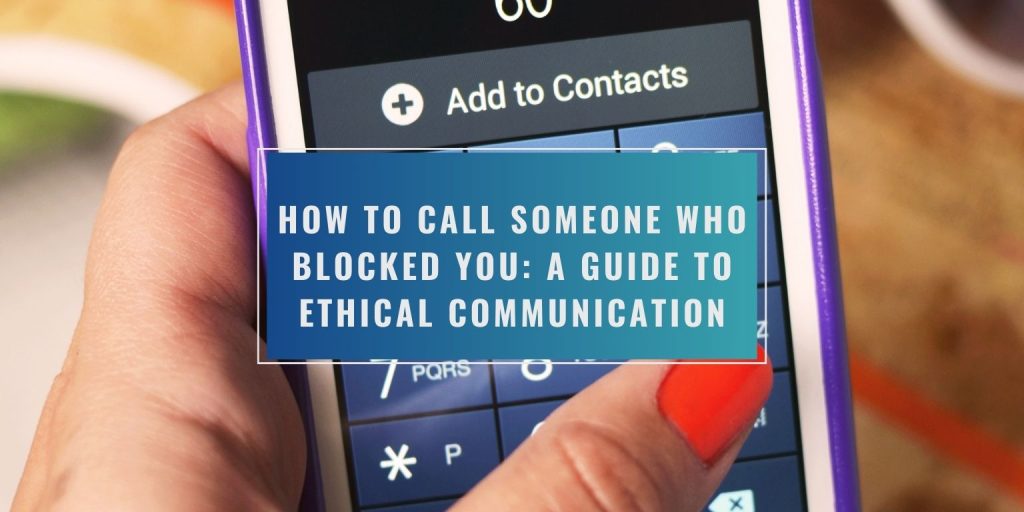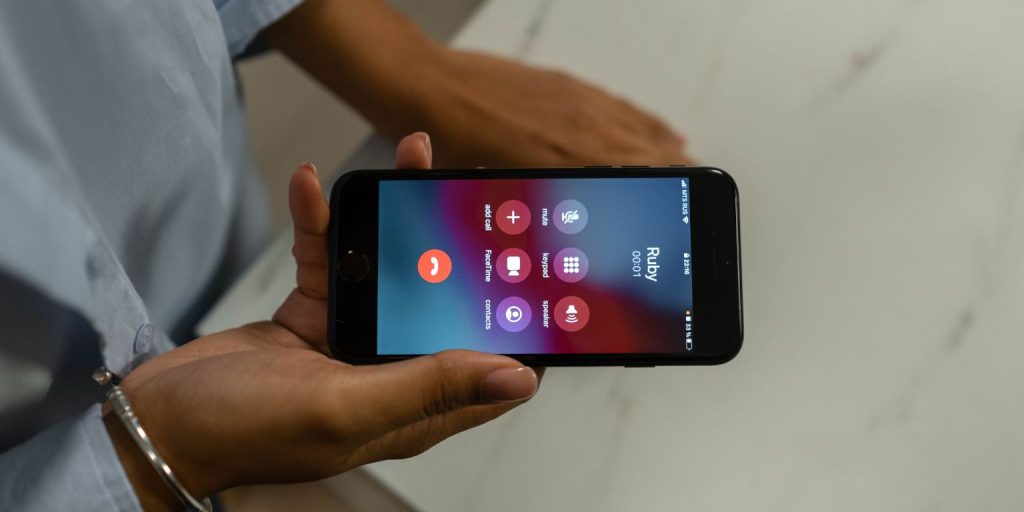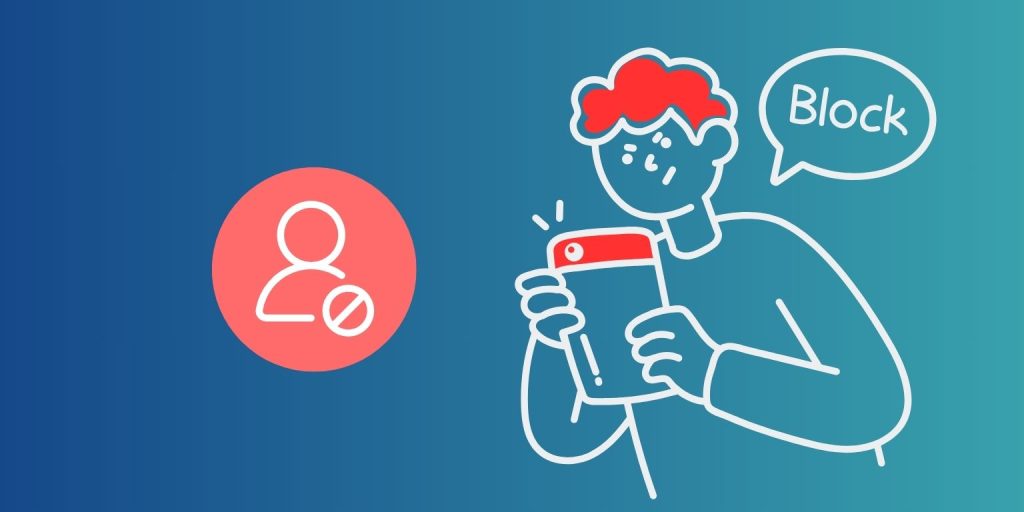Being blocked by someone can be a frustrating experience, especially if you need to contact them urgently. Whether it’s through your phone, a messaging app, or social media, getting blocked typically means that the person no longer wants to communicate with you through that channel. But what if you need to reach out despite being blocked? Can you still call someone who blocked you, and should you? This article will explore the ethical considerations and practical methods for contacting someone who has blocked you.
What It Means to Be Blocked and Why People Do It
When someone blocks you, they are preventing you from contacting them, either through phone calls, text messages, or social media platforms. Blocking is often used as a way to create distance, whether due to a disagreement, personal space needs, or as a response to unwanted behavior.
Understanding the reasons behind the block is important. People may block others for a variety of reasons, ranging from conflict to personal privacy. It’s crucial to respect these boundaries and give them the space they’ve requested. If you genuinely need to contact them, consider the next steps carefully and ethically.
Can You Call Someone Who Blocked You?
In most cases, if someone has blocked your number or messaging service, your calls or messages will not go through. This includes standard phone calls and texts as well as messages on apps like WhatsApp or iMessage. However, the block only applies to the specific platform or number, meaning it may be possible to contact them through other means, depending on the situation.
For example, calls from unknown numbers or from a different phone number might go through, but this could feel invasive, and it’s essential to consider whether this approach respects their boundaries.
Methods to Contact Someone Who Blocked You
If you’re determined to reach someone who’s blocked you, here are some methods you can try. Keep in mind that persistence can be perceived as disrespectful, so use these methods thoughtfully.
- Using Another Number: You could call or text from a different phone number or use a temporary number. While this might technically bypass the block, it could be seen as deceptive or intrusive. Be mindful of how the person may perceive this.
- Email: If phone and messaging platforms are blocked, email remains an effective alternative. Email allows you to express your thoughts, apologies, or requests for communication in a more formal manner. This method respects the person’s privacy while still allowing you to reach out.
- Social Media: If you’ve been blocked on a particular messaging platform but are still unblocked on social media, try reaching out via platforms like Facebook, Instagram, or Twitter. A polite and brief message may be an acceptable way to reconnect.
- Voicemail: If you’re calling from a number that’s blocked, you can leave a voicemail. Keep your message short and respectful, explaining why you’re trying to reach them and offering to discuss matters further if they are willing.
Is It Ethical to Call Someone Who Has Blocked You?
This is the most important question to consider. Just because you can contact someone through alternate means doesn’t mean you should. It’s crucial to think about the ethical implications of trying to contact someone who has blocked you.
When someone blocks you, it’s a clear indication that they don’t want to be contacted. Ignoring this signal can be seen as disrespectful and invasive. Ethical communication means respecting the other person’s boundaries. If they have blocked you, consider that they may need space, and trying to contact them despite the block may escalate tensions further.
If the situation is urgent, consider whether there’s another way to communicate, such as through a mutual contact. Always weigh the importance of your message against the other person’s right to privacy.
What to Do If You’ve Been Blocked and Want to Resolve the Situation
If you’ve been blocked, and you genuinely want to mend the situation, here are some steps you can take:
- Reflect on the Reason for the Block: Think about what led to the block in the first place. Was there a misunderstanding or a conflict? Understanding the underlying cause will help you approach the situation more thoughtfully.
- Consider Apologizing: If you believe the block was caused by a conflict, consider sending an apology. This could be done via email, a letter, or through a mutual friend. Apologizing shows maturity and can open the door to rebuilding trust.
- Respect Their Decision: Sometimes, the best option is to accept the block. If the person has made it clear that they don’t want to communicate, continuing to push for contact may harm the relationship even further. Give them the space they’ve requested.
Alternatives to Calling Someone Who Blocked You
If calling or texting is not an option, consider these alternatives for reaching out:
- Indirect Communication: If you share mutual friends or contacts, you might consider asking one of them to pass along a message on your behalf. This way, you’re respecting their privacy while still getting your message across.
- Write a Letter: If direct communication is not possible, writing a letter can be a thoughtful and non-invasive way to express your thoughts. A letter allows you to explain yourself without demanding an immediate response.
- Give It Time: Sometimes, the best thing to do is to give it time. If the block was temporary, they might unblock you once emotions settle. Respecting their decision and waiting for the right moment may be the best approach.
Conclusion: Respecting Boundaries and Finding Healthy Communication Methods
Being blocked by someone can be tough, especially if you still need to reach them. However, it’s essential to remember that blocking is a form of setting boundaries, and respecting those boundaries is crucial for healthy communication. If you’ve been blocked, consider why this happened and whether contacting the person is truly necessary.
Instead of focusing on bypassing the block, focus on ways to handle the situation with respect and maturity. If they’ve blocked you, respect their space. If you want to reconnect, consider writing a letter or waiting for the person to unblock you when they’re ready. Ultimately, healthy communication involves respecting others’ boundaries and finding alternative, thoughtful ways to resolve conflicts.
If you’ve faced a similar situation, feel free to share your thoughts in the comments or share this article with someone who might benefit from it.




